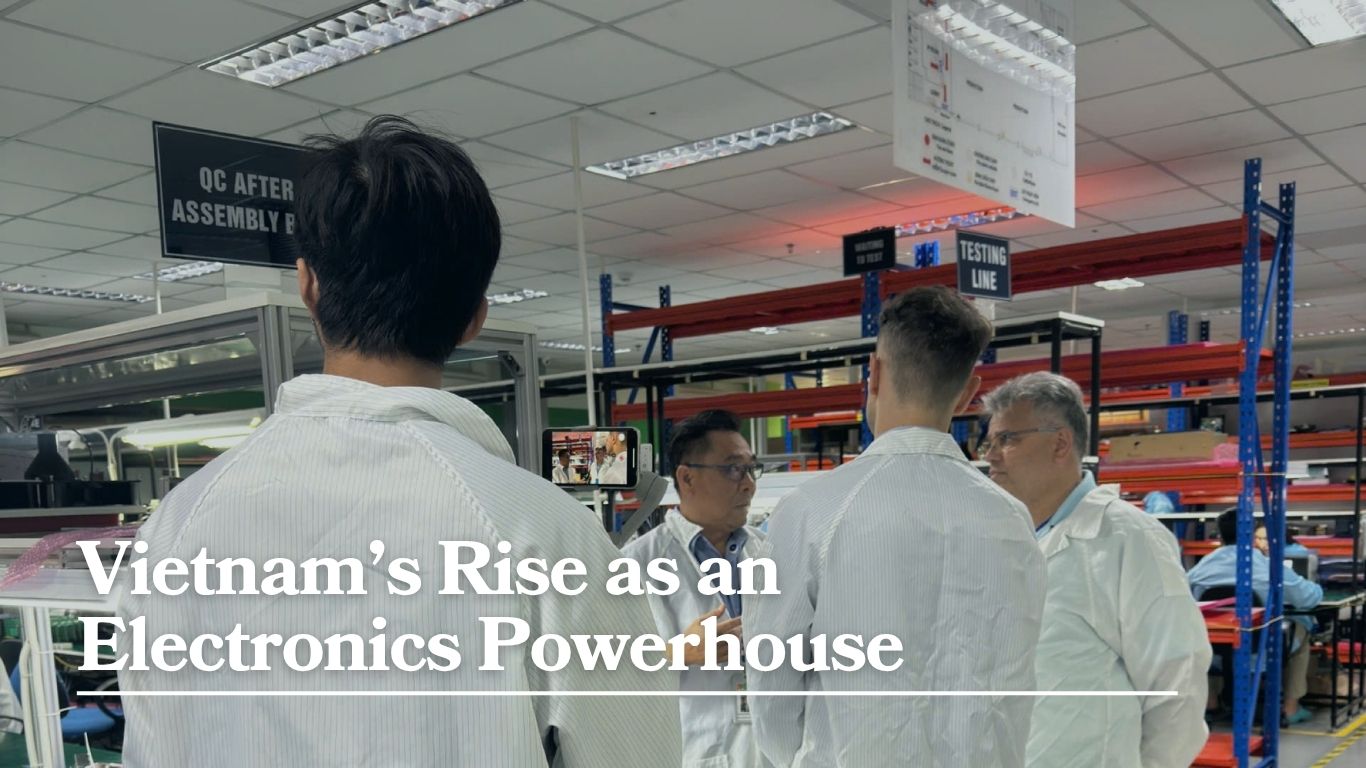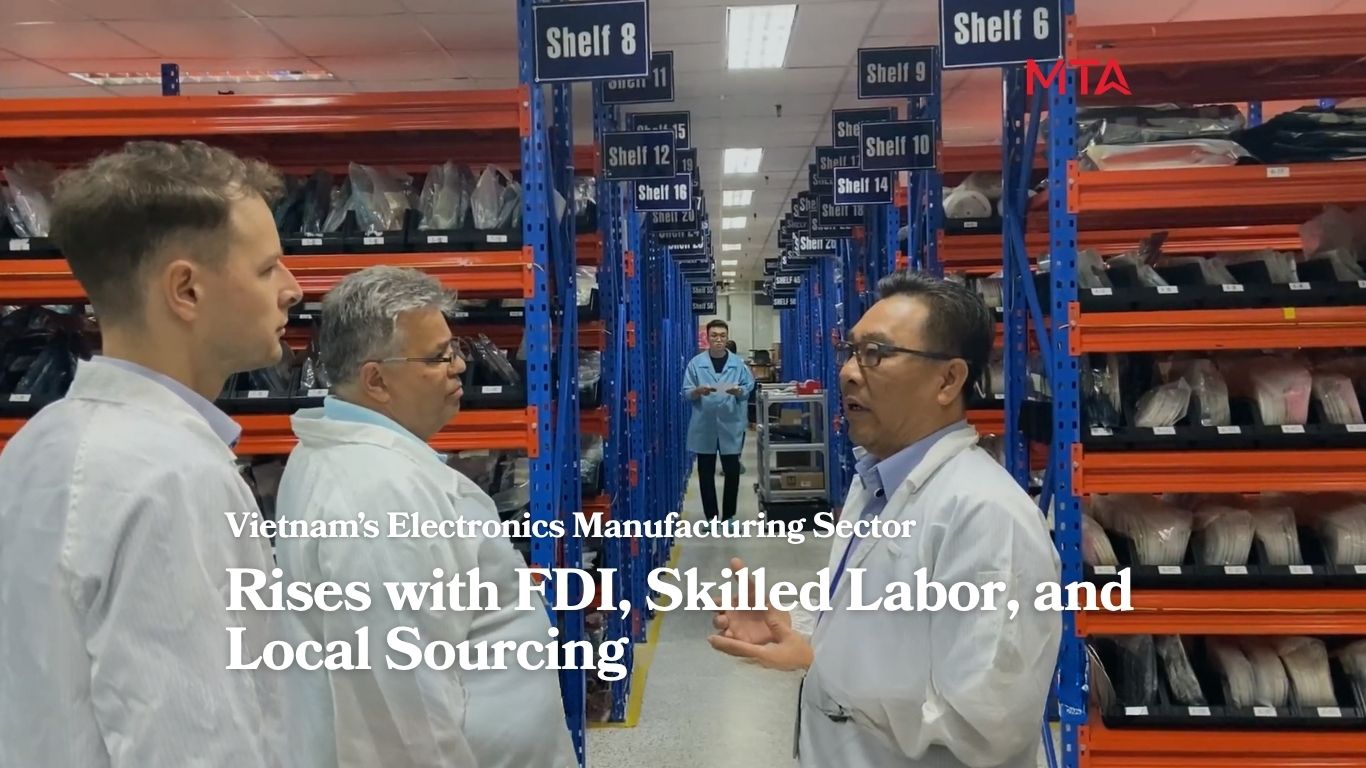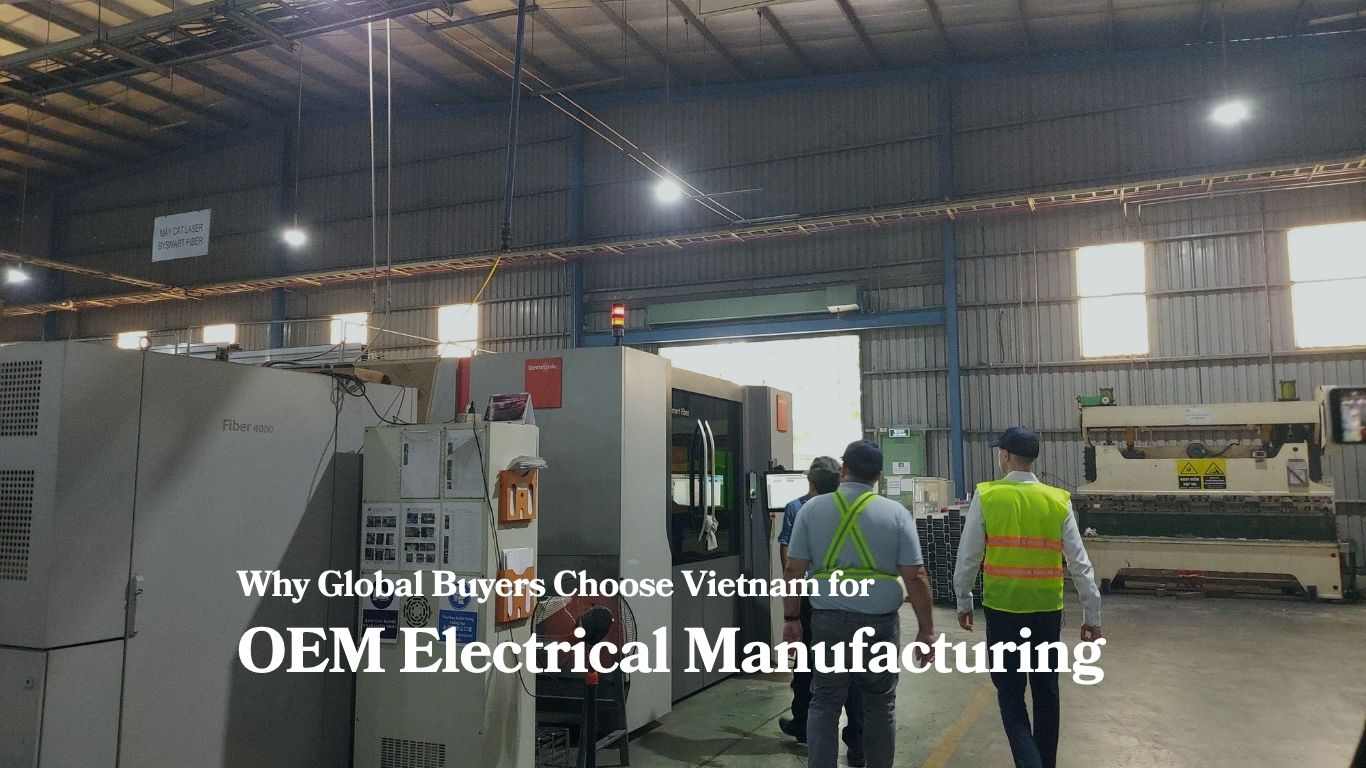As global electronics supply chains evolve, Vietnam is emerging as a key player. Once viewed primarily as a low-cost alternative, the country is now attracting strategic interest thanks to its strong influx of foreign direct investment (FDI), a rapidly expanding pool of skilled labor, and a growing local sourcing ecosystem. For global electronics brands seeking to diversify operations and future-proof supply chains, electronics manufacturing in Vietnam is no longer just a contingency — it’s a core component of long-term strategy.
Vietnam’s Rise as an Electronics Powerhouse
In recent years, Vietnam has made deliberate investments to enhance its electronics manufacturing capabilities. These efforts include not only tax incentives and favorable trade policies but also infrastructure development and partnerships with global technology leaders to boost technical capacity.
According to the Ministry of Planning and Investment, as of the end of 2024, Vietnam had attracted 174 foreign direct investment (FDI) projects in the semiconductor sector, with total registered capital reaching approximately USD 11.6 billion. Major global players such as Samsung, Intel, Marvell, CoAsia SEMI, and Nvidia are among the key investors. These capital inflows have significantly contributed to the development of electronics factories producing smartphones, computers, automotive components, and consumer electronics. In fact, the semiconductor sector alone is estimated to have generated USD 18.7 billion in revenue in 2024.

Why FDI Continues to Flow into Vietnam
Global electronics brands are increasingly shifting their operations to Vietnam, driven by long-term value and resilience rather than mere cost arbitrage. Key reasons include:
- Strategic Location and Political Stability: Located in the heart of Southeast Asia with direct access to global shipping routes, Vietnam enjoys geopolitical stability and close proximity to supply chain partners in China, Thailand, and Malaysia.
- Free Trade Agreements (FTAs): Vietnam is party to over a dozen FTAs, offering favorable tariff access to major markets including the EU, U.S., and Japan.
- FDI-Friendly Policies: Corporate tax holidays, land lease incentives, and streamlined registration processes in industrial parks and economic zones create a pro-investment climate.

Skilled Labor Fuels Complex Electronics Production
Vietnam is rapidly closing the talent gap in advanced manufacturing. Each year, the country produces over 40,000 graduates in engineering and technical disciplines. Multinational firms such as Samsung and Intel are actively investing in training programs, often in collaboration with universities and vocational institutions. Key areas of workforce development include:
- SMT (Surface Mount Technology) and THT (Through-Hole Technology) assembly
- Precision testing and failure analysis
- Cleanroom procedures for high-reliability sectors such as aerospace and medical devices
Vietnam’s competitive labor costs, combined with growing technical expertise, provide a significant advantage over traditional manufacturing hubs that face rising costs.

Local Sourcing Enhances Cost and Supply Chain Agility
A key evolution in Vietnam’s electronics landscape is the strengthening of local supply chains. Where manufacturers once relied heavily on imported components, many now source domestically to reduce lead times and costs. Local sourcing includes:
- PCB bare board fabrication
- Custom cable and wire harness production
- Plastic injection molding and CNC machining
- Electro-mechanical assemblies
This growing ecosystem supports both startups and established OEMs, enabling faster prototyping, tighter integration, and greater responsiveness to market changes.
Case in Point: PCBA Efficiency Gains Through Local Partnerships
Vietnam-based PCBA factories have reported measurable benefits from local sourcing. By procuring PCB bare boards, metal enclosures, and custom cables domestically, several EMS providers have shortened lead times by up to 30% and reduced costs by 15–20%. These savings are achieved while maintaining high export quality for customers in Europe, the U.S., and Japan.
A notable example is featured in this factory tour video, where a modern PCBA facility in Binh Duong showcases turnkey production for industrial electronics and IoT devices. The video highlights how local sourcing, modern equipment, and skilled technicians come together to deliver scalable, cost-effective solutions for global clients.
Expanding Horizons: From Consumer Electronics to High-Value Segments
Vietnam’s electronics manufacturing sector is no longer limited to consumer goods. Growth is increasingly being driven by sectors such as:
- Industrial IoT (IIoT) modules
- Smart home and EV controller systems
- High-frequency RF communications
- Medical electronics requiring strict traceability and cleanroom standards
Domestic and international EMS providers are scaling up operations to meet this growing demand, with many offering full turnkey services — from design for manufacturing (DFM) to final assembly and functional testing.

What This Means for Global Buyers
For OEMs and contract manufacturers looking to shift or expand production, Vietnam presents a robust, future-ready ecosystem supported by:
- Billions in FDI across core electronics and semiconductor verticals
- A growing skilled labor base trained in high-mix, low-volume and scale production
- Reliable domestic sourcing networks to lower BOM costs and mitigate logistical risks
While challenges remain — such as limited upstream semiconductor fabrication — Vietnam’s commitment to infrastructure, education, and export-readiness continues to solidify its role as a strategic manufacturing hub in the global electronics value chain.



